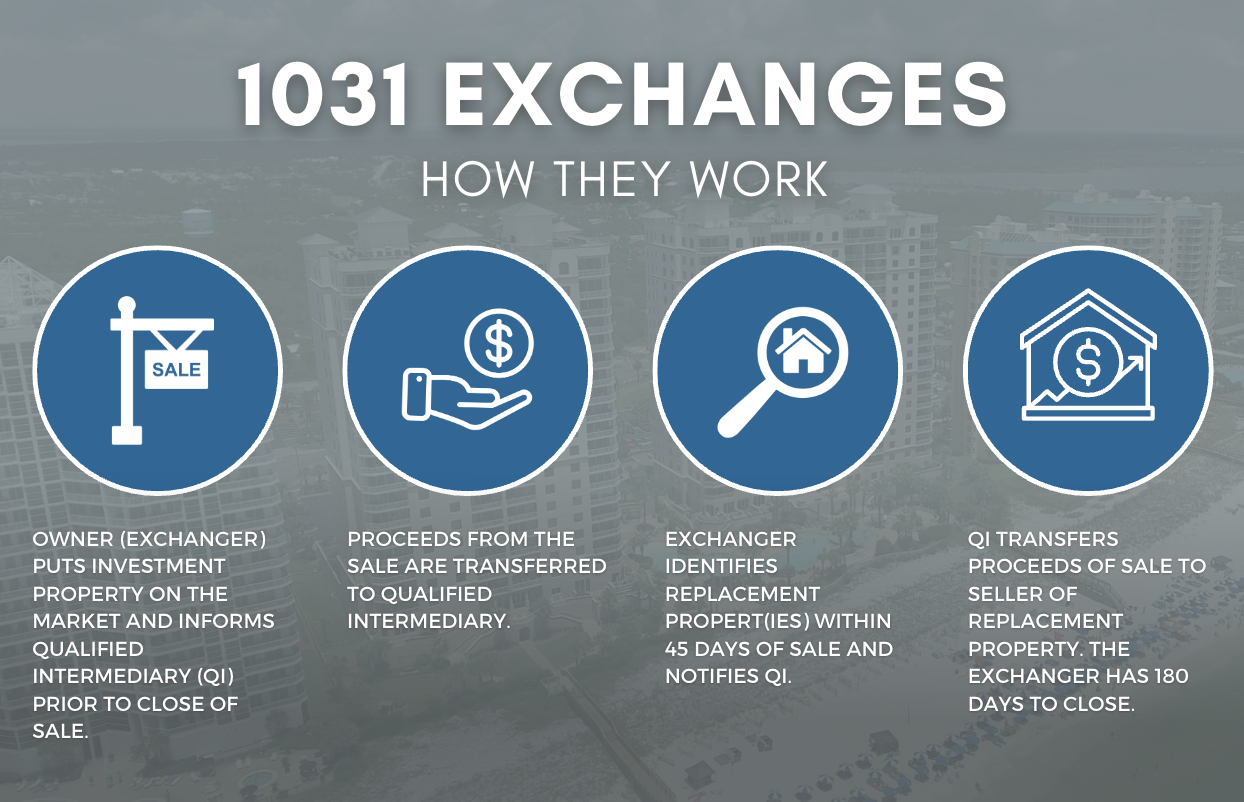1031 Exchanges for Rental Investment Properties
Posted by Mike Cranston on Monday, March 20th, 2023 at 5:42pm.

A 1031 exchange is a provision in the United States tax code that allows an individual or entity to defer paying capital gains taxes on the sale of certain types of investment or business property. Under the 1031 exchange, the proceeds from the sale of the original property are reinvested in a similar type of property, which is referred to as a "like-kind" property. This reinvestment must take place within a certain time frame and follow specific rules and regulations. By deferring the capital gains taxes, the individual or entity can use the full proceeds from the sale to invest in the new property, allowing them to potentially build wealth faster than they would if they had paid taxes on the sale of the original property. It's important to note that the rules and regulations surrounding a 1031 exchange can be complex, and it's recommended that individuals consult with a tax professional or financial advisor before pursuing this strategy.

Steps for completing a 1031 exchange:
1. Sell the original property: The first step is to sell the original property that you wish to exchange.
2. Identify replacement property: Within 45 days of selling the original property, you must identify one or more replacement properties that you plan to purchase as part of the exchange. The replacement properties must meet the requirements for like-kind property.
3. Enter into a purchase agreement: You must enter into a purchase agreement for one or more of the replacement properties within 180 days of selling the original property.
4. Use a qualified intermediary: To avoid disqualifying the exchange, you cannot take possession of the funds from the sale of the original property. Instead, you must use a qualified intermediary to hold the funds and facilitate the exchange.
5. Close on the replacement property: You must close on the purchase of the replacement property or properties within the 180-day window.
6. Report the exchange: Finally, you must report the exchange on your tax return and file IRS Form 8824. The amount of tax you owe will depend on the difference between the adjusted basis of the original property and the purchase price of the replacement property.
Over the last 20 years, I've helped many clients with their 1031 exchanges in the Orange Beach and Gulf Shores area. If you need help identifying a replacement property or navigating the 1031 exchange process, you can reach me, Mike Cranston, at 251-504-1121 or send a message through my website at www.condoinvestment.com.
